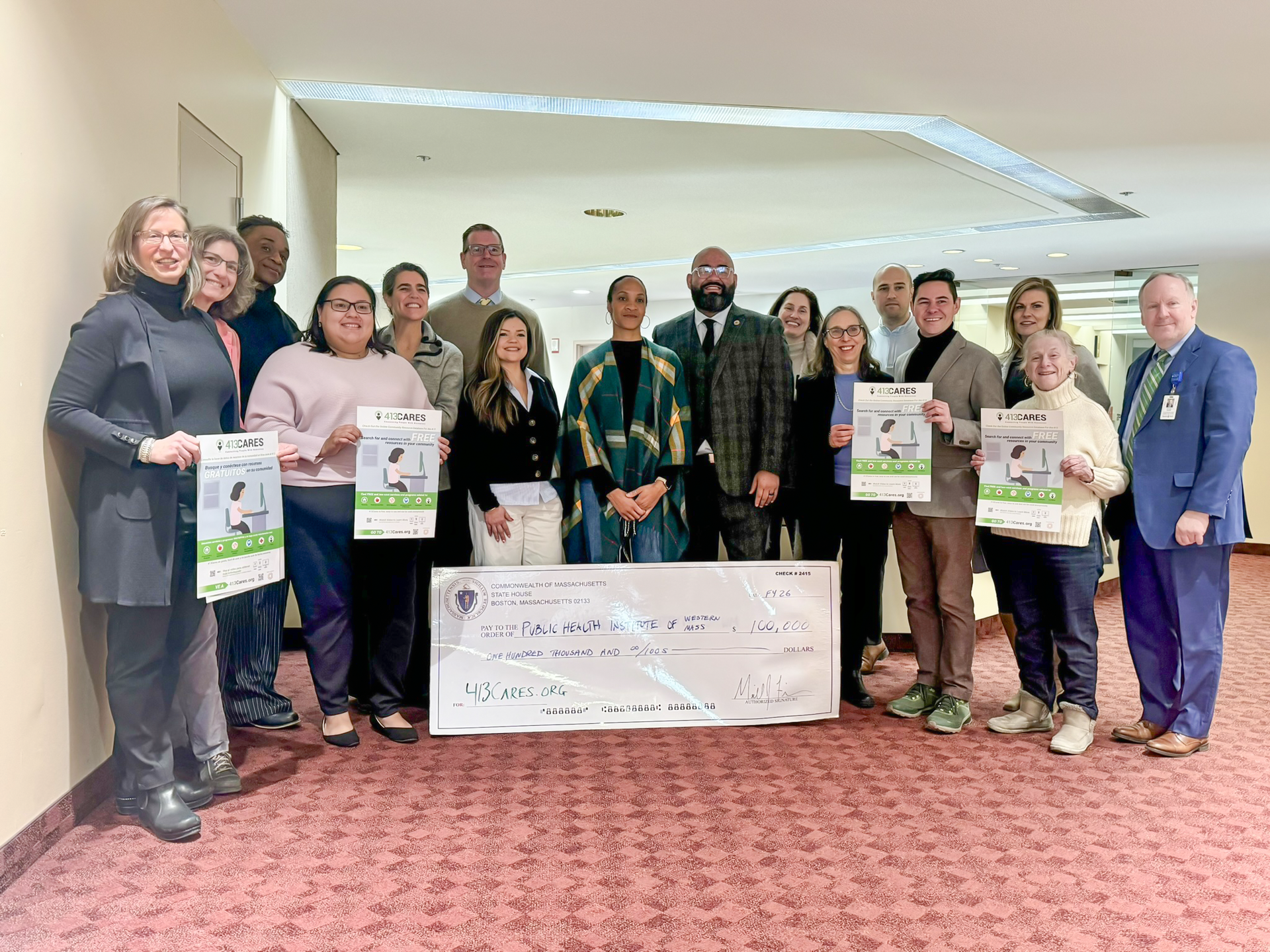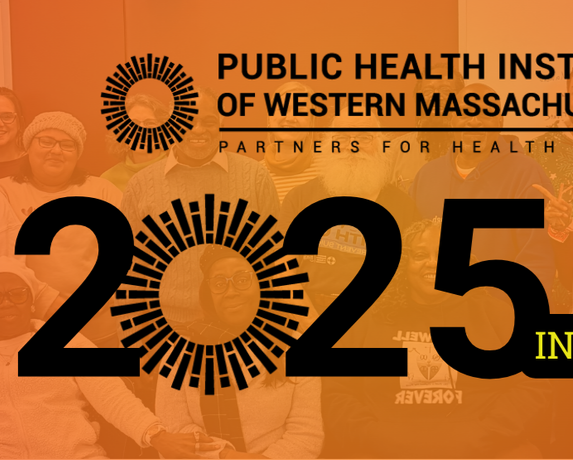COVID-19’s Impact on Communities of Color
COVID-19’s Impact on Communities of Color
In 2014, the PHIWM released the first Health Equity report under the leadership of our founding Executive Director, Dr. Frank Robinson. We called out the growing understanding that basic human needs (food, housing, education, employment) are the key determinants of health outcomes. Many of the health inequities experienced by communities of color, low-income people, and other vulnerable populations are due to created barriers to basic human needs. These barriers are often rooted in a history of discrimination at the individual, institutional, and government levels. Therefore, we are not surprised about the data reports shared by the MA Department of Public Health (DPH) showing who is more at risk and being impacted more by COVID-19. Painful, but obvious, those burdened already continue to be burdened. For the past months we have watched residents, institutions and government bodies calling out racism as a public health crisis and demanding policy changes to systems such as housing, economic development and criminal justice. Please review the data below and take action.
On June 19th, MA DPH’s COVID-19 Health Equity Advisory group released new data that highlights disparities in COVID-19 cases, hospitalizations, and deaths for different races and ethnicities. According to their analysis, Black and Hispanic/Latinx residents have more than three times a higher positive COVID-19 case rate than White residents. Similarly, Black residents represent 7% of the MA population but account for 14% of COVID-19 cases. Hispanics/Latinx residents represent 12% of the population, but more than twice that proportion of cases (29%).
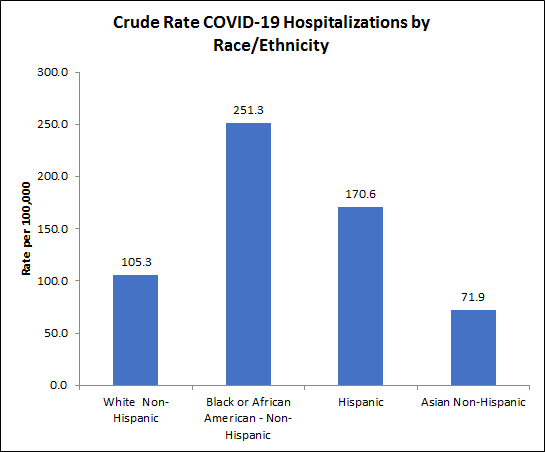
Graph from Health Equity Advisory Groups Recommendations PowerPoint 6-19-2020, accessed 6/23/2020 from https://www.mass.gov/doc/health-equity-advisory-group-recommendations/download , Data as of 6/17/2020
Hospitalization data also reveal that Black and Hispanic/Latinx populations bear a greater burden of COVID-19 hospitalizations. The rate of hospitalizations for Black residents and Hispanic/Latinx residents is 2.4 times and 1.6 times higher (respectively) than for White residents.
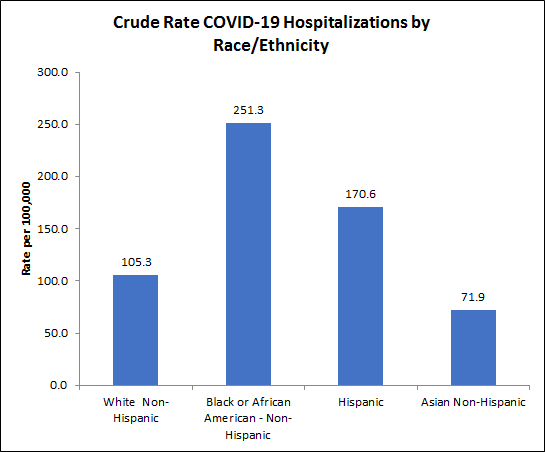
Graph from Health Equity Advisory Groups Recommendations PowerPoint 6-19-2020, accessed 6/23/2020 from https://www.mass.gov/doc/health-equity-advisory-group-recommendations/download Data as of 6/17/2020
Inequities can also be seen in COVID-19 death data. The age-adjusted death rate is highest among Black residents, followed by Hispanic/Latinx residents. Age-adjusted rates are helpful for comparisons between different race/ethnic groups given differences in the age distribution of these populations.
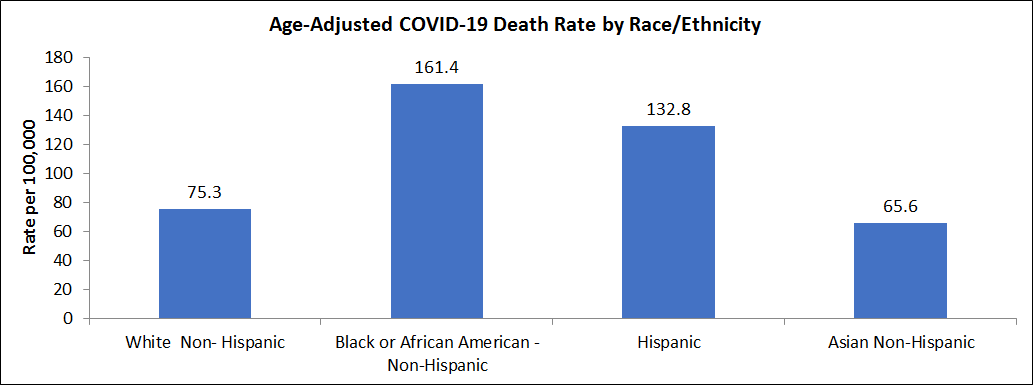
Graph from Health Equity Advisory Groups Recommendations PowerPoint 6-19-2020, accessed 6/23/2020 from https://www.mass.gov/doc/health-equity-advisory-group-recommendations/download ; Data as of 6/17/2020, Note: Population denominators for rate calculations provided by UMass Donahue Inst. based on Strate S, et al. Small Area Population Estimates for 2011 through 2020, published March 2020 (original report published Oct 2016). Rates are per 100,000 population. Age-adjusted to the 2000 US standard population. See weights used at: https://www.cdc.gov/nchs/data/statnt/statnt20.pdf
Although there are limitations with the data (race/ethnicity is missing or unknown in 35% of cases, 16% of hospitalizations, 2% of deaths as of June 22, 2020), the fact that we can see inequities in cases, hospitalizations, and deaths highlights the disproportionate impact of COVID-19 on Black and Latinx communities.
The COVID-19 Health Equity Advisory Group is convened by Public Health Commissioner Bharel to generate recommendations to respond to the COVID-19 pandemic with a health equity lens. The press release lists several key recommendations, including: continuing to disaggregate COVID data across populations and sectors; increasing equitable distribution of PPE for essential workers and residents in professions at most risk; and implementing policies that increase housing stability for populations disproportionately impacted by COVID-19. See a full list of recommendations from the Health Equity Advisory Group.
Partners across the state and locally are working on efforts to address health and racial inequities, the PHIWM included. Our mission at the PHIWM is to create measurably healthier communities, and our work is centered on health equity. We will continue to amplify advocacy opportunities; use data, research and evaluation to track and highlight inequities; and build partnerships and coalitions to identify and address those structures and policies that allow for inequities.
Visit our COVID-19 Data page to learn more.
share this
Related Articles
